Rediscovering the Pioneers Who Shaped Israel
In honor of Israel's 77th Independence Day, join us as we uncover surprising and important facts about the pioneers who first settled the land. Historian Moshe Nachmani shares insights into these early trailblazers, who often differed from popular tales. Plus: How many of Tel Aviv's founders were religious?
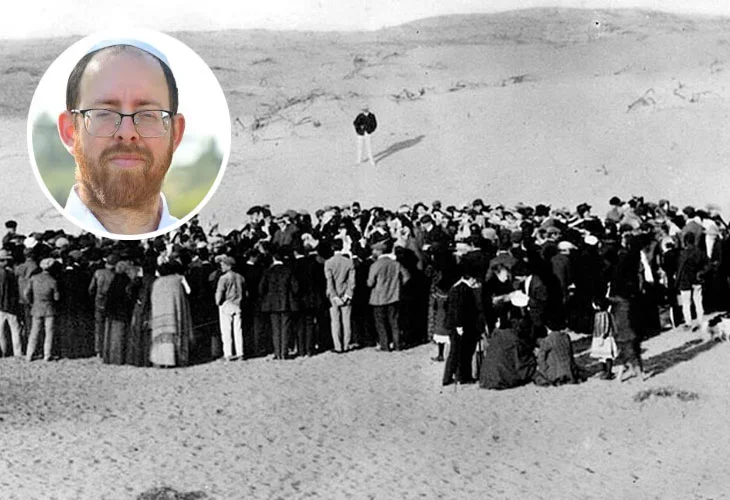 The establishment of Ahuzat Bayit neighborhood in Tel Aviv, inset: Moshe Nachmani
The establishment of Ahuzat Bayit neighborhood in Tel Aviv, inset: Moshe Nachmani"A Jew who has no understanding of the Talmud, even a superficial one, is a flawed Jew." This quote is attributed to none other than A.D. Gordon, regarded as a leading figure in the Zionist settlement movement.
I hear this fascinating insight from Moshe Nachmani, a historian living in Safed. Nachmani has been researching the old and new Yishuv and the Zionist movement for many years.
Anyone who has learned about the founding of the State of Israel knows about the pioneers. These young people heroically drained swamps, cleared rocks, and made the desert bloom before the state was established. Less known, however, is that many of these pioneers were devout in their beliefs and lifestyles, devotion equaled only by their dedication to settling the land.
"Jews have been coming to the land throughout the generations," explains Nachmani, "but they came to live in Jerusalem, study Torah in purity, and to be buried here, not for settlement purposes."
The True Early Pioneers
It is commonly believed that the period before the statehood marked the beginning of people coming with a new motivation—pioneering, meaning immigrating with a desire to build and develop the land. In history books, the Second Aliyah, which landed about 120 years ago, is seen as the first pioneers.
"The truth is, this is a mistake," says Nachmani. "The real early pioneers, those far less spoken about, arrived a hundred years earlier. About two hundred years ago, hundreds of disciples of the Vilna Gaon came from Europe with one aim: to settle the land. Their motives were entirely pioneering. They arrived in several groups, including Hasidic Jews, intending to make the desert bloom, settle the land, and thus hasten redemption."
Regarding colonies founded later, close to the founding of the state, Nachmani offers a surprising fact: "Many of those early pioneers in the colonies were ultra-Orthodox Jews. Most were Lithuanian, with a few being Hasidic." For illustration, Nachmani compiled a list during his research that included the founders of Tel Aviv, noting who observed Torah and mitzvot. The results showed that more than half of the founders of the first Hebrew city were religious.
Why is the role of these religious ultra-Orthodox Jews in settling the land less well-known?
"One must understand, during those years, today's sectoral divisions—secular, ultra-Orthodox, religious, etc.—did not exist. There were two groups: devout Jews—without distinction between ultra-Orthodox and religious—and secular Jews. Even among the secular back then, many came from a religious background and had respect for Jewish tradition. Quite a few observed Jewish festivals, for instance," Nachmani explains.
"Over time and with immigration to the land, sectors and sub-sectors emerged. At that stage, for both parties—those among the ultra-Orthodox who wished to distance themselves from actions that contravened the spirit of Jewish law from the secular group, and likewise from the secularists—it was convenient to 'forget' the ultra-Orthodox pioneers' part to sharpen distinctions and due to various grievances."
The Grandfather of Tel Aviv and His Brother
In his research, Nachmani mentions a series of pioneers who were all God-fearing, observant Jews. We'll name a few examples here.
Tel Aviv is called "the first Hebrew city." Its first neighborhood is Neve Tzedek, followed closely by the neighborhoods Ahuzat Bayit and Neve Shalom. Neve Tzedek was founded by a Hasidic and God-fearing Jew named R' Shimon Rokach. He was called the SHER, an acronym of his name. "One could say that Shimon Rokach was the grandfather of Tel Aviv," Nachmani recalls. "He was the founder of Neve Tzedek, established beyond the city walls of Jaffa, and everything built later in Tel Aviv emerged because of this neighborhood."
Rokach was part of the Ruzhin Hasidic dynasty. He insisted there be a Hasidic quorum in the neighborhood, but there was only a Lithuanian one. He didn’t give up on this detail and established a Hasidic quorum in his home.
"During the eulogies at Rokach's funeral, it was said he passed away relatively young due to distress. The eulogizers hinted that his distress was because he saw how the 'new settlement' was overtaking the 'old settlement,' and how the matter of settling the land, once in the hands of Torah and mitzvot observers and done in purity by observing Shabbat, was changing. In Tel Aviv's early years, city roads were closed on Shabbat," Nachmani reveals. "He was pained by the Shabbat desecrations in Tel Aviv and the new settlement, and these caused him distress, leading to his death. This was said at his funeral, although in hints, but very clear ones."
Elazar Rokach, Shimon Rokach's brother, was also a pioneer. He founded the colony Rosh Pina, which was then called Gei Oni. Like his brother, he was a Torah-observant Jew and Ruzhin Hasid.
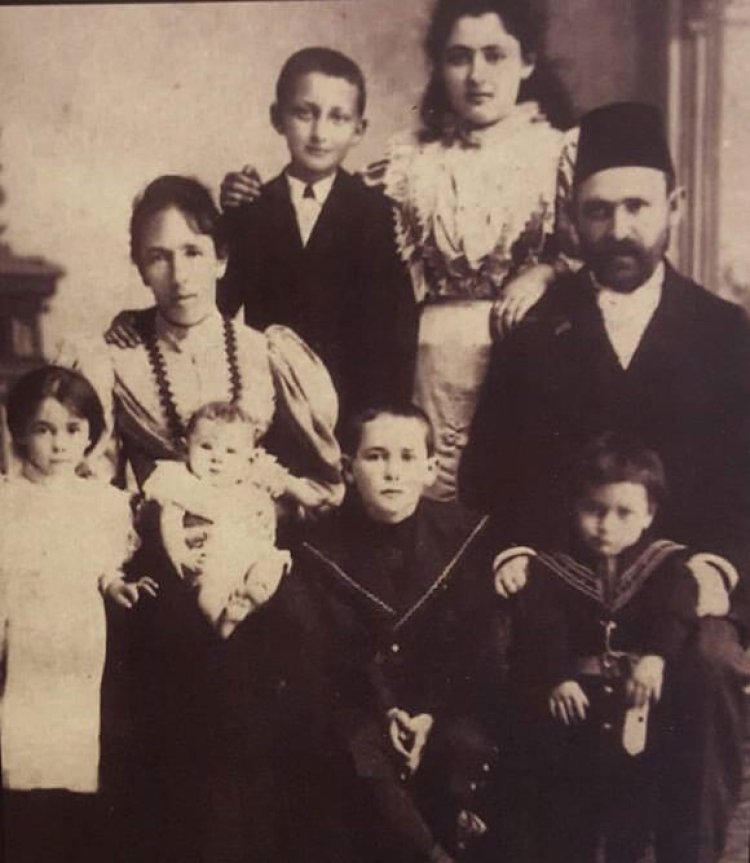 (Shimon Rokach and his family)
(Shimon Rokach and his family)Delighting in the Song of the Torah
Petach Tikva, the mother of settlements, was founded by several pioneers, including Yoel Moshe Salomon, Zerach Barnet, and Yehoshua Stampfer. They were young people in their twenties and thirties, entirely ultra-Orthodox in lifestyle and yeshiva graduates, actively participating in establishing the colony. They did manual labor—hoeing and pickaxing, and they built the colony's homes by hand.
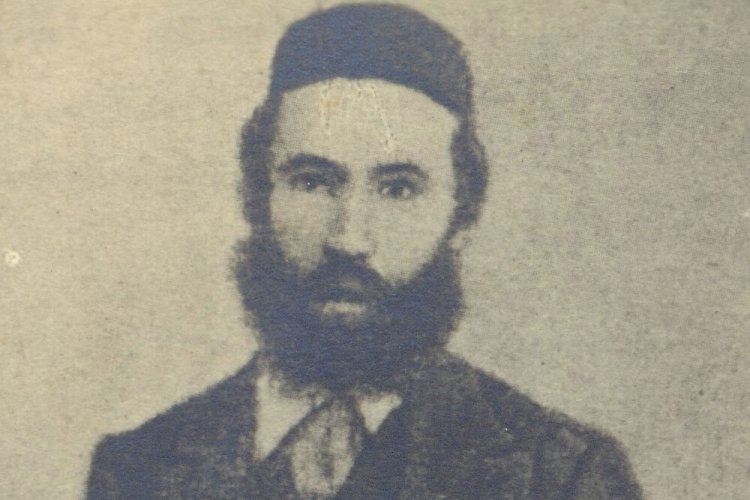 (Yehoshua Stampfer, one of the founders of Petach Tikva)
(Yehoshua Stampfer, one of the founders of Petach Tikva)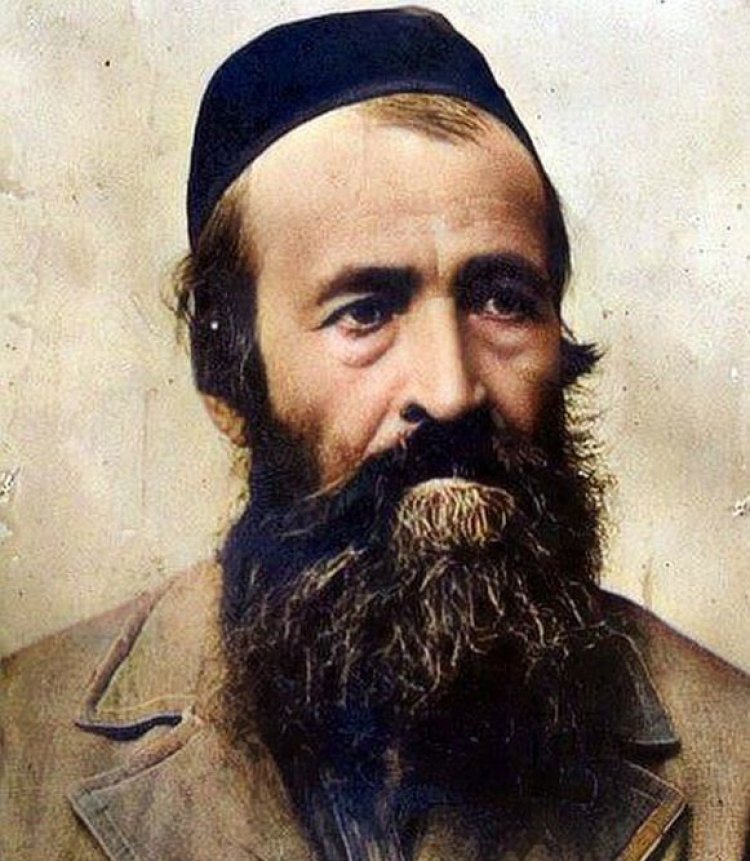 (Yoel Moshe Salomon)
(Yoel Moshe Salomon)Nachmani elaborates on Zerach Barnet. Before this venture, he participated in expanding beyond Jerusalem's walls and later in founding the Neve Shalom neighborhood in Tel Aviv, as well as other pioneering projects.
In Barnet's will, he asked his descendants to strictly observe Torah and mitzvot. "He urged them to build the land of Israel purely, for the sake of holiness. Zerach Barnet contributed significant sums to yeshivas and study halls. His wife was also a righteous woman, and it is told she would walk around Jaffa during the day, 'delighting in the song of the Torah in the yeshivas,'" Nachmani says.
"These were figures completely Zionist and full of action. They devoted their lives to settling the land, and all their actions stemmed from the study hall and a deep connection to the Bible and tradition."
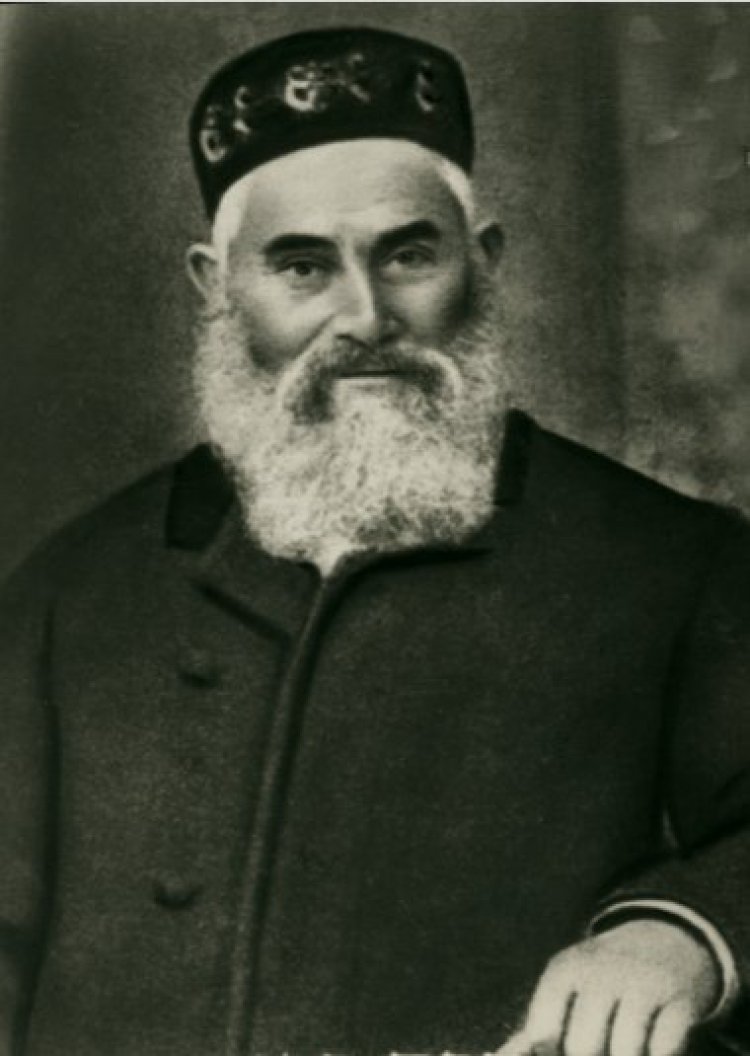 (Zerach Barnet)
(Zerach Barnet)The Rabbi of the Bilu’im
Nachmani mentions another group of young people, who, though not religious, were connected to Judaism: the colony Gedera was established by the Bilu movement, whose members were not religious. The primary founders were eleven young men. Lacking a proper structure and facilities, they lived in a cave with their horses. Despite not keeping Torah and mitzvot, these pioneers chose for themselves a spiritual leader—Rabbi Yechiel Michel Pines. They were greatly influenced by his character, and in the early Bilu regulations, clauses mandate that movement members separate tithes, observe Shabbat, and include Bible study for children as part of their education.
"The pioneers of the settlement chose Rabbi Pines as their leader, out of respect for his moral character. They saw in him a wise person worthy of learning from. The rabbi even composed the Bilu anthem for them," Nachmani concludes with another surprising fact. "It was all completely voluntary and from a profound respect for him and what he represented."
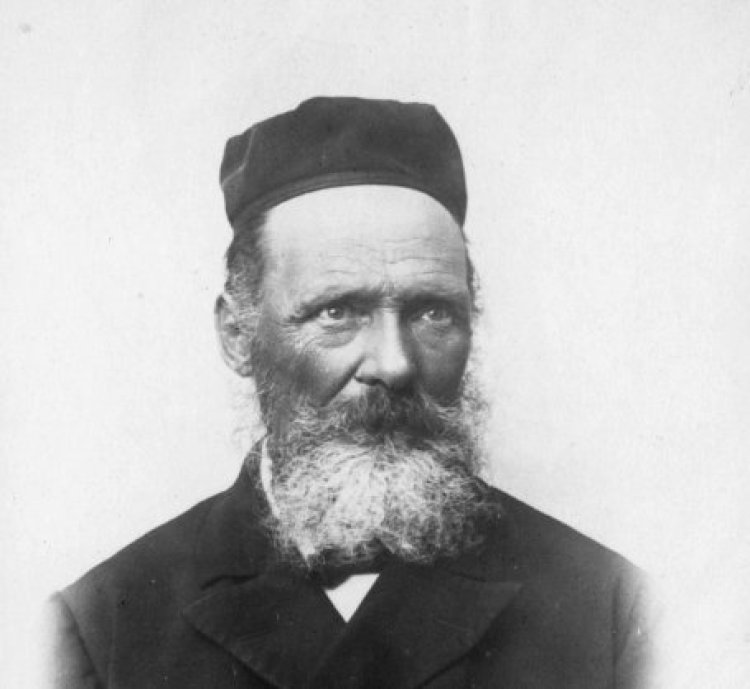 (Rabbi Yechiel Michel Pines)
(Rabbi Yechiel Michel Pines)Returning to A.D. Gordon, with whom we opened. The general public grew up with his figure as one of the leaders of the pioneers, yet his private life is veiled in mystery. "In research I conducted, I discovered that Gordon's great-grandfather was the Chief Rabbi of Vienna during the Vilna Gaon's era," Nachmani reveals. "By virtue of his role, the great-grandfather was responsible for the financial coffers of the Land of Israel. In other words, all funds collected by the Jews of Lithuania and Vienna for settling the land were centralized with this grandfather. He bequeathed the love of the land to his family and descendants." Nachmani details settlers' ideas expressed by Gordon’s nephews and grandchildren, not just the famous Gordon. "Gordon himself, who came from a religious home, was influenced by his grandfather," he concludes.
The photos in the article are courtesy of Moshe Nachmani

